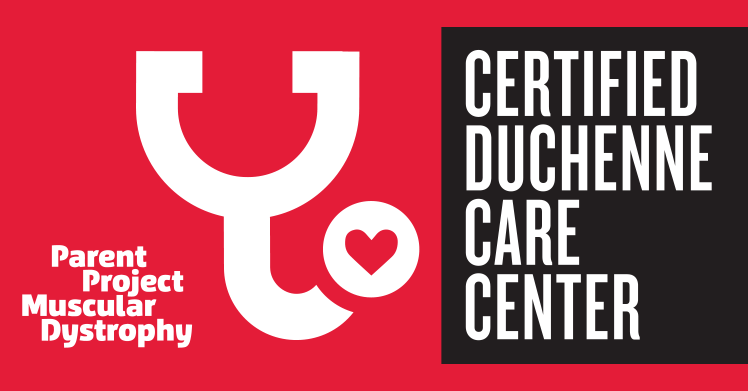
Today Parent Project Muscular Dystrophy (PPMD) announced the expansion of our renowned Certified Duchenne Care Center Program (CDCCP) with the program’s second Adult Certified Duchenne Care Center and first dually-certified center, the clinic at Kennedy Krieger Institute. This is an exciting next step for PPMD’s CDCCP as an increasing number of teens and adults living with Duchenne transition from pediatric care and look for quality clinicians and resources that address their needs as they age.
Rachel Schrader, MS, APRN, CPNP-PC, PPMD’s Senior Vice President of Clinical Care and director of PPMD’s Certified Duchenne Care Center Program says that the addition of adult clinic certification for previously certified pediatric centers, and thus the development of dually certified centers, is a natural progression of the program:
“Duchenne isn’t just a pediatric disease any more. People are living longer and require coordinated care throughout their lifespan. It’s exciting to see the adult network grow and centers like Kennedy Krieger Institute ensuring that patients receive age-appropriate care as their needs change. The continuity this team offers patients and families is incredibly important. Leveraging the pediatric CDCCs to provide care regardless of age contributes to improved outcomes, and we’re really proud of that.”
PPMD has certified 28 CDCCs capable of providing comprehensive care and services to Duchenne patients, with only one of these clinics certified for the adult services they provided. While some of these certified centers are able to offer at least some aspects of care to adults with Duchenne, Kennedy Krieger is the first center to obtain certification in both pediatric and adult care.
Originally certified by PPMD in 2014, Kennedy Krieger Institute was the first center to seek dual pediatric and adult CDCC certification. Kennedy Krieger offers a comprehensive, interdisciplinary, individualized approach to all stages of care. Dr. Kathryn Wagner is the founding director of the Center for Genetic Muscle Disorders at the Kennedy Krieger Institute and professor of Neurology and Neuroscience at the Johns Hopkins School of Medicine. For years, Wagner has played an integral role in helping PPMD improve care in Duchenne. Wagner cares for people with Duchenne throughout their lifespan, but in particular is acknowledged by the Duchenne community for recognizing and addressing the unique needs of young adults living with Duchenne.
About today’s dual certification, Wagner said:
“The Center for Genetic Muscle Disorders at Kennedy Krieger is delighted to partner with PPMD to provide lifelong care to those with Duchenne. The dual pediatric and adult CDCC certification is an indication that we are providing state of the art care for all stages of the disease. I am very optimistic that several of the new therapies in development for Duchenne that we are trialing will soon become standard of care in our clinics.”
PPMD’s Certified Duchenne Care Center Program supports standardized, comprehensive care and services for all people living with Duchenne. Certification means centers maintain the highest standards in clinical and sub-specialty services, rapidly apply new evidence-based knowledge, minimize heterogeneity in clinical research outcomes, and comply with standards in clinical care that were established by the CDC’s Care Considerations. As part of its ongoing mission to end Duchenne, PPMD continues to insist that all people with Duchenne receive comprehensive care.
Schrader is optimistic that expanding the CDCCP to include dually certified centers encourages other centers to consider seeking dual certification and refine their program to meet these requirements, standardizing adult care and increased access to care for adults living with Duchenne:
“PPMD and the CDCC Certification Committee are incredibly excited about the ability to offer this important area of care. We expect that with Kennedy Krieger being the first to tackle the new dual certification model, other centers will consider dual certification as well. Many centers already provide adult care, or have established relationships with adult providers within their healthcare system. Fostering these relationships to optimize care throughout the lifespan is incredibly important for adults living with Duchenne.”
To learn more about PPMD’s Certified Duchenne Care Center Program, visit PPMD’s website. Click here to learn more about the history of PPMD’s Certified Duchenne Care Center Program and to access PPMD’s first published article on the program.



 by: Parent Project Muscular Dystrophy
by: Parent Project Muscular Dystrophy

